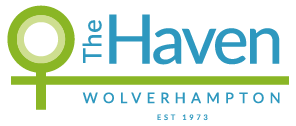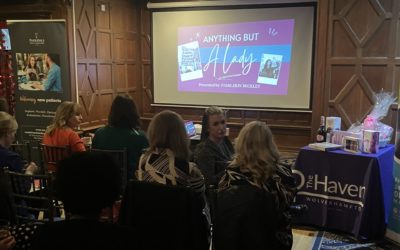Today is World Day Against Trafficking in Persons. This year the official theme from the United Nations Office on Drugs and Crime is Victims’ Voices Lead The Way. The aim is to shine a spotlight on survivors and the importance of listening to and learning from them. Survivors are key to the fight to end abuse and violence against women and girls. In the fight against human trafficking and other forms of modern slavery, they play a very important role in helping agencies develop policies, review laws, and establish effective measures for early intervention and prevention. They also help with identifying and rescuing victims and supporting them on their road to recovery and rehabilitation.
One of the reasons we choose to centre women’s voices in the way that we do at The Haven is because we know that learning from survivors, listening to their stories, and making effective use of their suggestions helps us to provide better wrap-around support. This goes hand in hand with our person-centred approach, ensuring that survivors are involved in shaping the service that they receive. Survivors of human trafficking have disclosed that their horrendous experience is made worse by stigma and misconceptions before they can even get access to help. Sometimes, the help they receive is inappropriate or inadequate.
I was offered a job outside of the country. I was promised I would be famous and make a lot of money as a professional dancer.
Marcela, survivor. At the time she was 21, her daughter was sick and she had a lot of bills to pay for medical treatment. Read Marcela’s story here.
Anyone can be a victim of modern slavery and victims can be exploited in many different ways. In the year ending June 2019, The Salvation Army in England and Wales reported that 48% of the 2000+ survivors they supported had experienced labour exploitation and 39% had experienced sexual exploitation. On average, women and girls account for 99% of victims in the commercial sex industry, and 58% in other sectors of forced labour.
When survivors are asked how or why they found themselves in this position, there are a few common reasons that they disclose:
- Lack of opportunity – (in country or origin) desire for a better life, a secure job, somewhere to live and a steady income.
- Financial Debt – pressure to pay off debts of their own or for their families.
- Poverty – more vulnerable to gang masters offering opportunities for work and secure accommodation.
- Substance Dependency – offered access to drugs or alcohol in exchange for labour.
- Mental Health Issues – more vulnerable and easier to manipulate or control.
- Dreams of a better life – sold the ‘dream’ of being able to migrate abroad and work legally with support.
At The Haven we offer a CPD accredited course on Modern Slavery for professionals who work in close contact with victims and perpetrators. Modern slavery is the umbrella term for any activity where one person obtains or holds another person in compulsory service. This can include slavery, servitude, forced or compulsory labour and human trafficking. Victims of modern slavery are unable to leave their situation of exploitation. They are controlled by threats, punishment, violence, coercion, manipulation and deception.
Someone is in slavery if they are:
- Forced to work and threatened mentally or physically.
- Owned or controlled by an ’employer’.
- Dehumanised or bought and sold like a commodity.
- Physically restricted and are cannot move around freely.
Using real-life case studies, this training is designed to help attendees gain knowledge about the realities and prevalence of modern slavery by defining modern slavery, identifying types of modern slavery including human trafficking, county lines, understanding behaviours and indicators that identify a person may be subjected to modern slavery or trafficked, exploring why people are exploited, how to respond to suspicions or disclosures, duty to report, who to report to and what to expect when you report e.t.c.
If you are interested in finding out more, please contact training@havenrefuge.org.uk.
MODERN SLAVERY HELPLINE
The UK Modern Slavery Helpline and Resource Centre provides a means for victims, the public, statutory agencies and businesses to report concerns and get help and advice, on a 24/7 basis.
The helpline is fully independent and confidential. It is free to call on 08000 121 700, submit online or spot the signs of modern slavery and report concerns using the free Unseen App.
FOOD FOR THOUGHT



